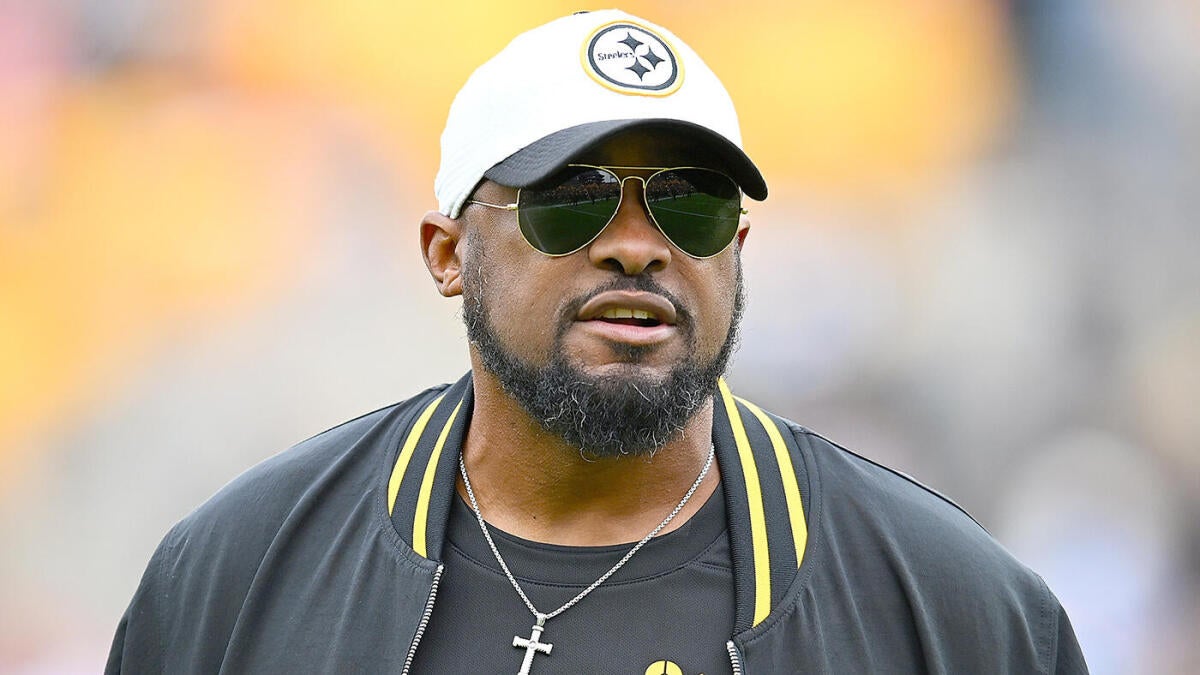“`markdown
The Enduring Legacy of Mike Tomlin: Stability in a Turbulent Sports World
In professional sports, where coaching changes often mirror the volatility of stock markets, Mike Tomlin stands as a rare pillar of continuity. With Gregg Popovich’s retirement from the San Antonio Spurs, Tomlin now holds the distinction of being the longest-tenured active head coach across the NFL, NBA, NHL, and MLB—a testament to his leadership, adaptability, and unwavering commitment to the Pittsburgh Steelers.
The Anatomy of Longevity
Tomlin’s 17-year tenure with the Steelers is a masterclass in sustained success. Hired in 2007 at just 34 years old, he inherited a franchise steeped in tradition and immediately made his mark by leading the team to a Super Bowl victory in his second season. Unlike many coaches who rise and fall with their star players, Tomlin has navigated seismic shifts—most notably the retirement of franchise quarterback Ben Roethlisberger—without sacrificing competitiveness.
Key to his longevity is his ability to evolve. He’s shifted offensive philosophies, adapted to modern player dynamics, and maintained a locker room culture rooted in accountability. While other teams cycle through coaches searching for a quick fix, the Steelers’ ownership has reaped the rewards of patience, trusting Tomlin to weather storms and keep the team relevant.
The Rarity of Stability
In today’s sports landscape, coaching tenures are often measured in months, not years. The average NFL head coach lasts just 3.5 seasons; Tomlin has outlasted them all. This stability isn’t just a feel-good story—it’s a strategic advantage. Players develop under a consistent system, front-office decisions align with long-term vision, and the organization avoids the chaos of perpetual rebuilds.
Tomlin’s Steelers have never had a losing season under his watch, a streak unmatched in the modern NFL. Even in “down” years, his teams remain competitive, a reflection of his ability to maximize talent. This consistency has fostered a culture where excellence is expected, not hoped for—a stark contrast to franchises trapped in cycles of turnover and disappointment.
Popovich’s Shadow and the Coaching Tree
Gregg Popovich’s 29-year reign with the Spurs looms large over Tomlin’s achievement. Popovich didn’t just win championships; he built a dynasty that prioritized system over stars, influencing an entire generation of coaches. His departure marks the end of an era, but his legacy lives on through protégés like Mike Budenholzer and Becky Hammon, who’ve carried his principles into their own careers.
Tomlin, while operating in a different sport, shares Popovich’s emphasis on culture. Both coaches understood that sustained success isn’t about flashy schemes but about instilling values that outlast individual players. The difference? Tomlin has done it in the NFL, where parity and shorter careers make continuity even harder to achieve.
The Road Ahead
At 51, Tomlin is young enough to chase Popovich’s longevity record, but the challenges are mounting. The AFC North is fiercer than ever, quarterback uncertainty lingers, and fan patience wears thinner in the social media age. Yet, Tomlin’s track record suggests he’ll adapt. Whether it’s embracing analytics, managing egos, or developing new talent, his ability to pivot without panic has defined his career.
The Steelers’ future hinges on his next moves. Will he find a franchise quarterback? Can he modernize the offense without abandoning the “Steelers Way”? These questions loom, but if history is any guide, betting against Tomlin is unwise.
Why Tenure Matters
Tomlin and Popovich’s careers underscore a broader truth: in sports, stability is an undervalued asset. Owners chasing the next hot name often overlook the dividends of patience. The Spurs and Steelers demonstrate that culture, institutional knowledge, and trust compound over time, yielding results that transcend individual seasons.
In an era of instant gratification, Tomlin’s tenure is a reminder that greatness isn’t built overnight. It’s the product of daily grind, resilience, and a refusal to let short-term failures derail long-term vision.
Conclusion: The Quiet Revolution
Mike Tomlin’s rise to the top of the coaching longevity list isn’t just a personal milestone—it’s a quiet revolution against the disposable nature of modern sports leadership. In a league where “Super Bowl or bust” mentality fuels chaos, he’s proven that consistency breeds its own kind of excellence.
As the Steelers enter a new chapter, Tomlin’s legacy is already secure. He hasn’t just coached a team; he’s sustained a standard. And in doing so, he’s redefined what it means to lead. The NFL may be a league of constant change, but in Pittsburgh, one thing remains certain: Mike Tomlin isn’t going anywhere—and neither is the culture he built.
“`











